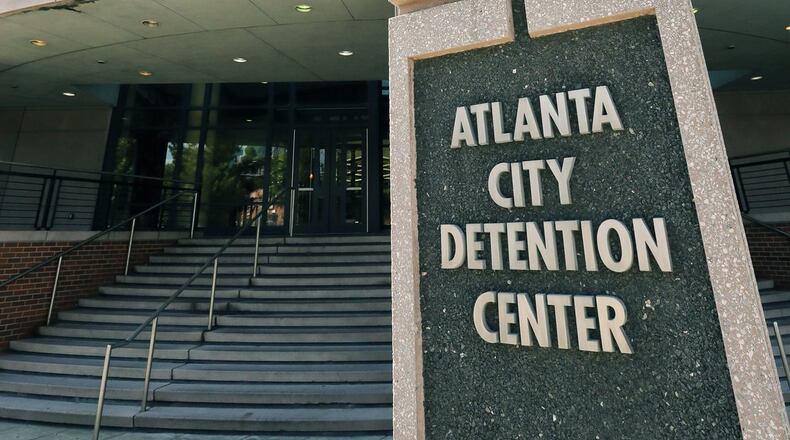An Indian national who was being detained by federal immigration authorities in Atlanta died Tuesday at Grady Memorial Hospital. He is the second U.S. Immigration and Customs Enforcement detainee to die in Georgia in the space of two days.
Atulkumar Babubhai Patel, 58, was pronounced dead at 1:20 p.m. Tuesday, according to ICE. His preliminary cause of death, the federal agency said, has been ruled to be complications from congestive heart failure.
Federal authorities are also investigating the death of a Panamanian national who was being held in an immigration detention center in Stewart County, located more than 100 miles southwest of Atlanta. Jean Jimenez-Joseph, 27, died after he was found unresponsive — with a sheet around his neck — in his solitary confinement cell at the Stewart Detention Center at 12:45 a.m. Monday, ICE said. He had been isolated for 19 days.
Patel arrived at Hartsfield-Jackson Atlanta International Airport on May 10 aboard a flight from Quito, Ecuador. He did not have the required immigration documents, according to ICE, so he was placed in the federal agency’s custody at the Atlanta City Detention Center. He received a medical screening there and was found to have high blood pressure and diabetes, according to ICE. On Saturday, a nurse checking his blood sugar noticed he was short of breath, so he was transported to Grady, where he later died.
ICE has contacted Indian consular representatives, who have notified Patel’s next of kin. Patel is the eighth detainee to die in ICE custody in the fiscal year ending this September.
“ICE is firmly committed to the health and welfare of all those in its custody and is undertaking a comprehensive agency-wide review of this incident, as it does in all such cases,” the federal agency said in a news release issued Wednesday afternoon. “This agency’s comprehensive review will be conducted by ICE senior leadership to include Enforcement and Removal Operations, the Office of Professional Responsibility and the Office of the Principal Legal Advisor.”
News of the fatalities in Georgia comes as the Trump administration is seeking to ramp up immigration enforcement and deport many more people living in the U.S. without authorization. The government has issued a pair of directives that start the process of building a new wall on the southwest border, hiring 15,000 more ICE and Border Patrol officials and vastly widening the pool of people prioritized for expulsion. Meanwhile, Trump administration officials are seeking more detention space.
Indian officials in Atlanta and Washington did not immediately respond to requests for comment Wednesday. Panamanian officials also have not responded to requests for comment.
A spokesman for U.S. Customs and Border Protection, the agency that found Patel inadmissible when he arrived last week, had no immediate comment.
Shana Tabak, who teaches immigration law at Georgia State and Emory universities, called the two deaths “shocking and tragic.”
“If the U.S. government is going to elect to deprive immigrants of their freedom, then the U.S. government is also constitutionally obligated under the Eighth Amendment to provide adequate medical care, and that includes mental healthcare for detainees,” said Tabak, chairman of the Georgia Immigration Working Group, a network of immigration attorneys that supports ICE detainees. “And two deaths in Georgia in one week certainly raises the question to me of whether ICE and the U.S. government is meeting those legal obligations.”
Patel and Jimenez are among more than 170 people who have died in U.S. immigration detention centers since 2003, according to Community Initiatives for Visiting Immigrants in Confinement, or CIVIC, which wants to end immigration detention in this country.
“The cost of our current immigration detention system in both dollars and lives cannot be justified,” said Christina Fialho, one of CIVIC's cofounders.
ICE defended its practices.
“All individuals who enter ICE custody receive a comprehensive medical screening within twelve hours,” ICE spokesman Bryan Cox said. Patel, Cox added, "was promptly identified as needing additional medical care and transferred to the appropriate location, which shows that ICE is fully committed to ensuring individuals in its custody receive all appropriate medical treatment.”
About the Author
Keep Reading
The Latest
Featured

